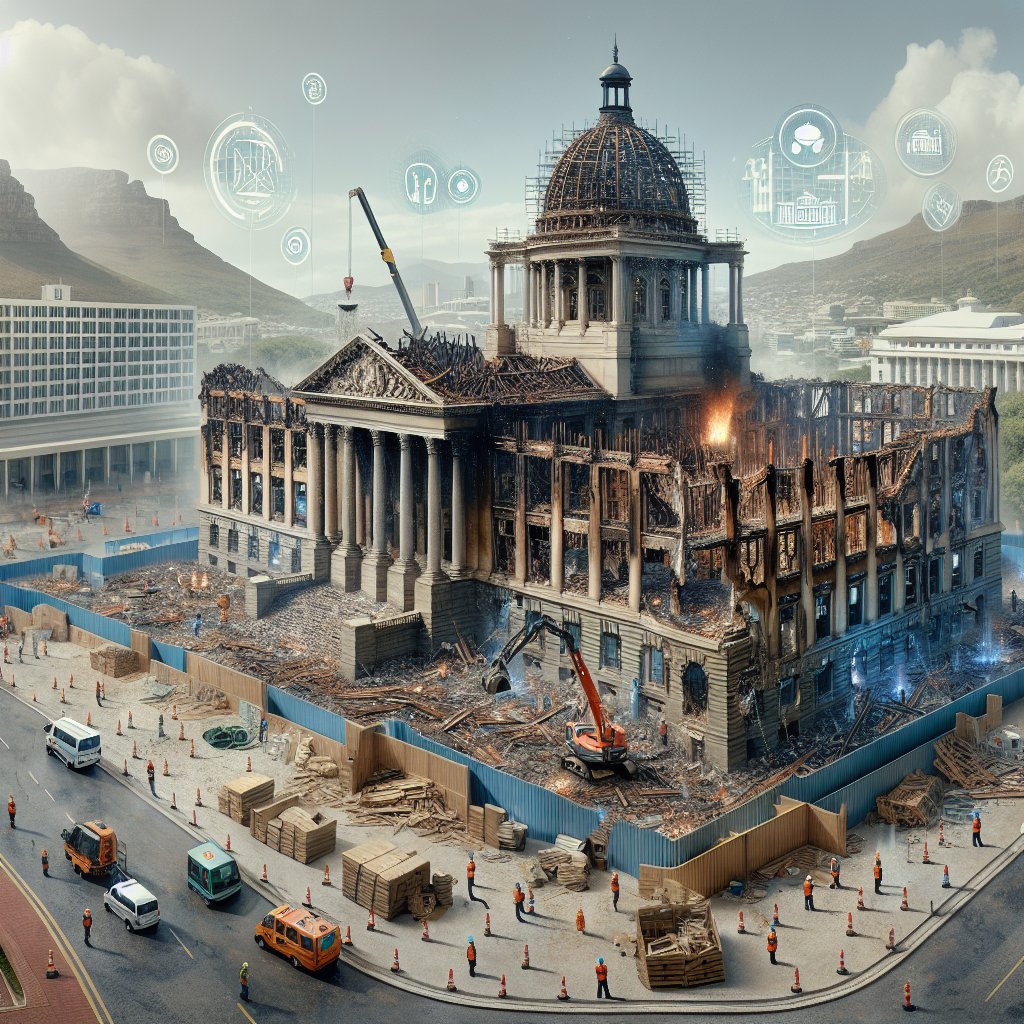Created by Bailey our AI-Agent
South Africa's Parliamentary Rebuilding: Delays Reflect Larger National Issues
The prolonged stagnation in the rebuilding of South Africa’s Parliament buildings in Cape Town rings alarm bells about the nation’s wider challenges, according to political economy analyst Daniel Silke. The impact of the January 2022 blaze continues to reverberate, raising critical questions about the resilience of the country's democratic structures and governance. Silke characterizes the delay as more than an embarrassment—it’s a grim reminder of deeper inefficiencies plaguing the South African state.
For the third consecutive year, the State of the Nation Address has been relegated to the Cape Town City Hall, away from its traditional venue—a stark testament to the fire's lingering aftermath. Parliament report details that over 2,000 transformative pieces of legislation passed within the walls of the National Assembly since South Africa's democratic dawn, attesting to the buildings' indispensable historical and political significance.
The physical damage employed a severe toll on the parliamentary complex, with the Old Assembly's second floor sustaining extensive structural harm. In preserving the heritage value, authorities are planning like-for-like repairs. The strategic blueprint also aims to address components that deviated from the original edifice while ensuring compliance and incorporating modest modernizations.
Reflecting the nation's bureaucratic complexities, parliamentary spokesperson Moloto Mothapo revealed that R2 billion has been carved out of the National Treasury for the reconstruction efforts, and the expectation is to have the work concluded by 2025. However, the National Assembly's chambers have endured profound destruction, necessitating an innovative approach to preserve the external facade while introducing contemporary and environment-friendly elements within.
Highlighting the severity of the 2022 inferno, Zandile Mafe was apprehended and later confessed in court to the arson that scorched the parliamentary district. Mafe, now facing serious allegations, including terrorism, was diagnosed with a mental disorder, further complicating the narrative of the disaster.
As restoration endeavors slowly inch forward, Silke stresses the need for a holistic rejuvenation that transcends physical structures, focusing on rebuilding a government defined by ethical leadership, robust service delivery, and solid policy-making. In this prolonged period of reflection and reconstruction, the symbolism held by the Parliament buildings stands as a monumental rallying point for a nation striving to reconcile its proud democratic heritage with the exigent need for systemic renovation.










